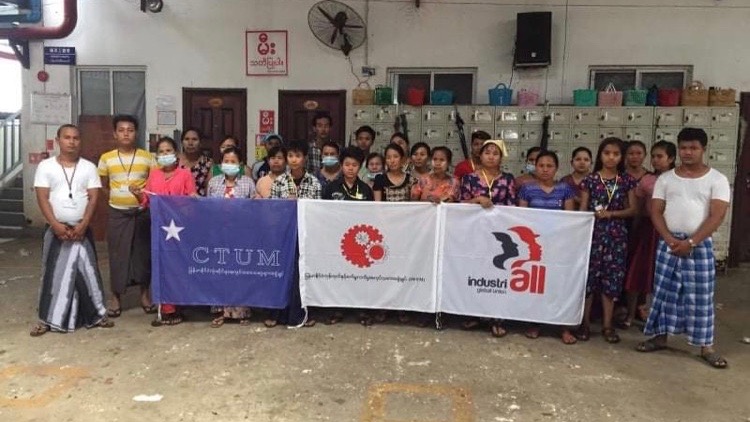In Yangon, Myanmar, several garment workers got their jobs back this week after months of struggle and intervention by the Industrial Workers Federation of Myanmar (IWFM). The union had been in negotiations with Kamcaine Manufacturing and the Futeli garment factory for the reinstatement of workers fired by them citing the COVID-19 crisis. The pandemic triggered large-scale layoffs in Myanmar, with garment industry workers among the worst affected.
As per an agreement reached between the IWFM and Kamcaine Manufacturing, 57 workers who were members of the IWMF, including seven local union leaders, will be reinstated at their previous positions with full pay and benefits, reported IndustriALL Global.
The company had justified the terminations on the grounds of COVID-19. However, IWFM has accused Kamcaine of union busting as more workers were hired after those who were with the union lost their jobs in March.
The IWFM also secured reinstatement with full compensation for 111 workers of the Futeli garment factory. These workers had lost their jobs in March and April.
“Since March, Industrial Workers Federation of Myanmar, suppliers and ACT brands have started social dialogue on freedom of association guidelines,” said IWFM president Khaing Zar. The freedom of association (FOA) guidelines stipulate that “no worker should be penalized or discriminated against for his or her participation in a trade union,” as per IndustriALL Global.
“I hope suppliers consult trade unions and brands before implementing any redundancy plan. If suppliers take unilateral decisions without discussing with us, it defeats the purpose of social dialogue,” he added.
Since February, 44 garment factories have shut down in Myanmar resulting in approximately 22,000 workers losing their jobs. Myanmar’s garment industry is the worst affected by the pandemic after Cambodia, due to factories relying heavily on raw material imports from China.





